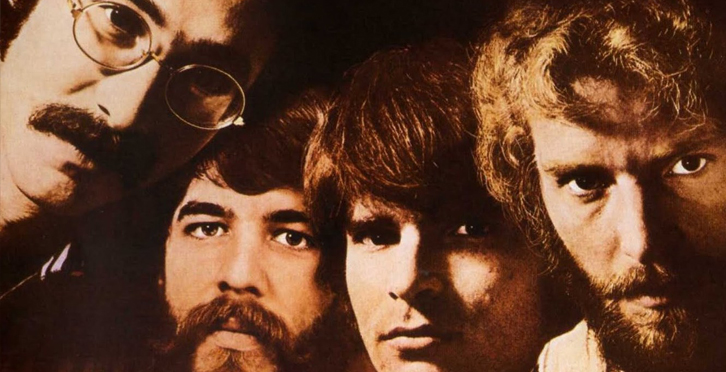When Creedence Clearwater Revival released their third album, Green River, in August of 1969, the nation’s mood was a somber one. With the Vietnam War raging on and the wounds from the Civil Rights struggle still fresh, John Fogerty’s title track declaration that the “world [was] smolderin'” was something of an understatement, a sentiment that Fogerty carried into subsequent albums Willy and the Poor Boys and Cosmo’s Factory.
Here in 2014, that sentiment feels as prescient and timely as ever. The events in Ferguson, MO, and the increasingly dire situation in the Middle East have made for a particularly bloody summer, one that has drawn a number of comparisons to those 1960s summers that inspired so much of CCR’s output.
While CCR’s message feels as relevant as ever, the music itself sounds nothing like what one hears scanning through today’s pop and rock radio, leading one to wonder whether the band responsible for countless Billboard hits and 26 million albums sold worldwide could survive today’s musical climate. When trying to conjure modern day equivalents, a couple names come to mind (namely Kings of Leon and the Black Keys), but there is no one comparison that matches CCR in sound, message or overall trajectory. In fact, it’s those three qualities, which brought the band such overwhelming success in the 1960s, which would likely damn them to obscurity today.
Though Fogerty and company hail from El Cerrito, CA, their music has an undeniably southern bent, one that has sparked many an “are they or aren’t they” debate when it comes to the distinction of “southern rock.” True “southern rock” or not, that Louisiana bayou-inspired sound made CCR famous is nowhere to be found on rock radio today (unless, again, you count the Black Keys, whose more recent output has drifted away from the Delta blues pastiche of their earlier albums). Country radio, too, has turned away from traditional country and southern rock in favor of pop and hip-hop, relegating most of what southern rock gets played on radio to oldies stations.
There are a handful of artists, like Little Big Town who have managed to bring a bit of CCR’s bayou sound to country radio, but noticeably without the band’s message, which, with their protest songs and frank discussions of class, would be far too liberal for a format that trades in patriotism and small town family values. Outside of country radio, protest songs are still a thing of the past, outdated relics occasionally dusted off by more outspoken artist like Bright Eyes or, more recently, EMA, never amounting to the colossal commercial success of songs like Green River’s “Bad Moon Rising” or Cosmo’s Factory’s “Fortunate Son.”
Few acts in recent memory have had the career trajectory of CCR, either. Mumford & Sons, whose Americana-via-England brand of interloping does mirror CCR’s outsider take on southern music, did see a swift rise to stardom with their debut Sigh No More, but have failed to match CCR in both prolificacy and cultural significance. With seven albums spanning just five years, CCR’s career is something of a microcosm of rock and roll stardom, with the band’s rise, peak and ultimate breakup occurring in the same time span it takes most acts to follow up their debut. That their legacy endures as strongly as those of other bands with decades under their belts speaks volumes to the influence Fogerty and his bandmates had on popular rock music.
CCR, then, is the kind of band that was truly born from a moment in history, one that managed to distill the tribulations and anxieties of a United States in transition into the kind of music that’s still influencing artists fifty years down the road. It’s hard to say if CCR would have had the same impact even just a few years later, as the Vietnam War ended and both disco and the Laurel Canyon movements swept the United States, but luckily for us they were in the right place at the right time. And while this generation may not have found its John Fogerty just yet, at least we have these albums to get us through, our own Green Rivers to escape to when the world starts smoldering.

